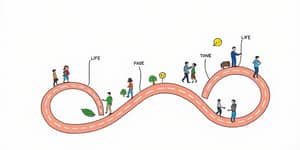Embarking on the path to financial freedom early in life can transform your future, offering both flexibility and peace of mind. This guide outlines the core principles, actionable strategies, and inspirational mindset you need to redefine your relationship with money and secure lasting success.
By starting now, you leverage the power of time and compound interest to build wealth more effectively than those who delay. Let’s explore how you can take control today.
Why Start Early?
When it comes to money, time is your greatest ally. The earlier you begin, the longer your investments have to grow, and the more resilient your financial foundation becomes.
Consider this: a person who invests $200 per month at age 25 at 7% annual return will amass roughly $500,000 by age 65. That isn’t luck—it’s the magic of sustained, consistent effort combined with patient, disciplined investment.
Key Steps to Achieve Financial Freedom
Reaching financial freedom involves ten core steps. Each builds on the last, creating a robust framework for long-term success.
- Assess Your Financial Situation: Calculate your net worth by subtracting liabilities from assets. Track all income and categorize monthly expenses.
- Set Clear Financial Goals: Define SMART objectives—specific, measurable, achievable, relevant, and time-bound. Distinguish between short-term targets (emergency fund) and long-term ambitions (home ownership, early retirement).
- Budget Strategically: Adopt the 50-30-20 rule
- Eliminate High-Interest Debt: Prioritize credit cards and payday loans using either the avalanche method (highest interest first) or the snowball method (smallest balances first). Explore debt consolidation if it lowers your overall interest rate.
- Build an Emergency Fund: Aim for three to six months of living expenses stored in a liquid account. This buffer protects you from unexpected job loss or medical bills.
- Invest Early and Consistently: Contribute to retirement accounts (401(k), IRA), brokerage accounts, and diversified portfolios. Automation ensures you never miss a contribution.
- Increase Your Income: Launch a side hustle, freelance, or monetize hobbies. Investigate passive income avenues like real estate rentals or dividend-paying stocks.
- Automate Savings and Payments: Schedule automatic transfers to savings and investments. Automate bill payments to avoid late fees and maintain an excellent credit score.
- Live Below Your Means: Guard against lifestyle inflation by saving windfalls and raises instead of upgrading spending habits.
- Educate Yourself Continuously: Read books, listen to podcasts, and follow reputable financial educators. Staying informed prevents costly mistakes and opens new opportunities.
Building Strong Financial Habits
Developing consistent habits is crucial. Regular reviews, disciplined saving, and mindful spending create a sustainable cycle of growth.
Shift from a consumer-driven mindset to a savings-centric one. Each purchase becomes an opportunity cost: what could this money earn if invested instead?
- Review your budget and net worth monthly.
- Adjust contributions as income grows.
- Celebrate milestones to stay motivated.
Tracking Progress and Milestones
Milestones help you visualize success. Tracking benchmarks ensures you remain on target and adjust your tactics when life changes occur.
Use the following table as a guideline for retirement savings. These are general goals, but personal circumstances may require tailored targets.
Overcoming Common Obstacles
Even the best plans encounter hurdles. Recognizing and addressing them promptly keeps you on course.
- Debt Burdens: Use negotiation and consolidation to reduce interest rates and payments.
- Lack of Financial Literacy: Seek mentorship, attend workshops, and leverage free online resources.
- Lifestyle Inflation: Resist spending more when income rises; instead redirect excess toward investments.
The Mindset of a Financially Free Individual
Financial freedom is more than a number; it’s a way of thinking. Adopt a growth-oriented perspective and celebrate incremental wins.
Embrace setbacks as learning opportunities. A single lapse doesn’t derail your journey; it’s merely part of the process. Stay disciplined, adapt to changes, and remember why you started.
Embrace the Journey
Financial freedom is a marathon, not a sprint. Early starters enjoy the luxury of time, but consistency and adaptability are universal requirements.
By following this guide—assessing your situation, setting SMART goals, and cultivating resilient habits—you’ll build a foundation that supports your dreams, whether that’s early retirement, travel, entrepreneurship, or simply the peace of mind that comes with control over your finances.
Start today. Your future self will thank you for the wisdom, discipline, and foresight you demonstrate now.
References
- https://nativeteams.com/blog/financial-freedom
- https://www.moneyfit.org/financial-freedom-means/
- https://www.tfnbtx.com/7-steps-to-take-to-achieve-financial-freedom-for-2025/
- https://www.amerantbank.com/ofinterest/debt-management-strategies-for-financial-freedom-2025/
- https://www.sccu.com/articles/personal-finance/guide-to-achieving-financial-freedom
- https://www.boh.com/blog/achieving-financial-freedom-what-how-and-why
- https://www.tcdrs.org/library/7-strategies-for-financial-independence/
- https://www.websterbank.com/resources/webster-investments/article/financial-freedom-vs-financial-independence-key-differences-and-how-to-work-towards-both/
- https://www.truist.com/resources/wealth/articles/10-steps-to-financial-freedom-in-your-twenties-and-thirties










